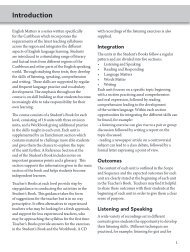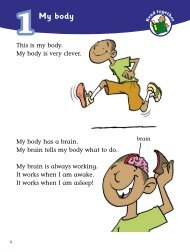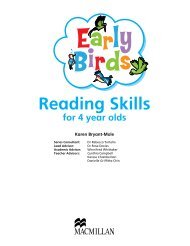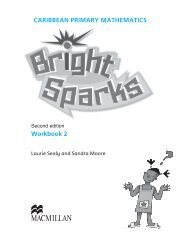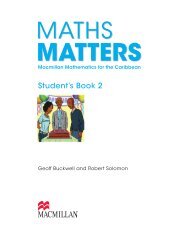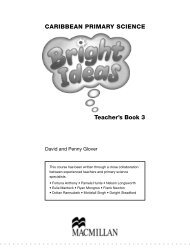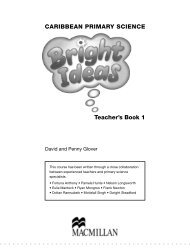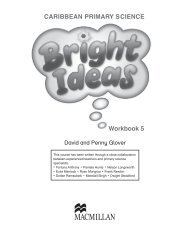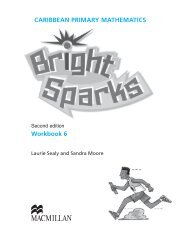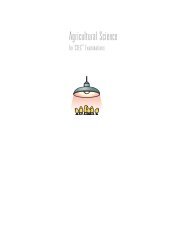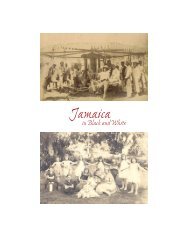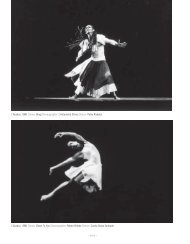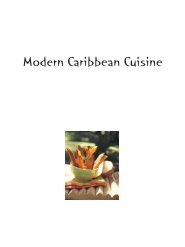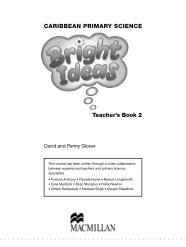What is research? - Macmillan Caribbean
What is research? - Macmillan Caribbean
What is research? - Macmillan Caribbean
Create successful ePaper yourself
Turn your PDF publications into a flip-book with our unique Google optimized e-Paper software.
Contents<br />
Preface 4<br />
CHAPTER 1 – Research and <strong>research</strong> vocabulary 5<br />
CHAPTER 2 – Choosing and writing a <strong>research</strong> topic 10<br />
CHAPTER 3 – Research design, methods and strategies 14<br />
CHAPTER 4 – Sampling and sample selection 20<br />
CHAPTER 5 – Data collection instruments 24<br />
CHAPTER 6 – Presenting, reporting and analysing findings 31<br />
CHAPTER 7 – Putting an SBA project together 39<br />
CHAPTER 8 – Review test for private candidates 43<br />
CHAPTER 9 – Glossary of <strong>research</strong> terms you should know 50<br />
3<br />
CSEC_1_52_2ndpp.indd 3<br />
5/15/09 11:39:44 PM
Preface<br />
Th<strong>is</strong> handbook provides guidance for students doing School Based Assessment (SBA)<br />
projects in social studies, geography, principles of business and other CSEC subjects<br />
and for private candidates preparing for CXC examinations, Alternative Papers.<br />
In addition, teachers and students pursuing undergraduate study programmes at<br />
tertiary institutions in the region and persons interested in the acqu<strong>is</strong>ition of basic<br />
<strong>research</strong> skills and methodologies would find th<strong>is</strong> book helpful.<br />
Some guidelines for school candidates doing <strong>research</strong> projects for CSEC<br />
examinations:<br />
■<br />
■<br />
■<br />
■<br />
■<br />
■<br />
■<br />
■<br />
■<br />
Select a problem to investigate and write it in question form<br />
Select suitable methods to collect data<br />
Write out the exact questions that you would ask on questionnaires or in<br />
interviews; seek the ass<strong>is</strong>tance of your teacher<br />
Select a sample from a particular locality, school or group; state the<br />
character<strong>is</strong>tics of the sample chosen and the method used to select the sample<br />
Present and d<strong>is</strong>play data using tables, graphs, maps, photographs, diagrams and<br />
text<br />
Interpret and explain the data you have d<strong>is</strong>played<br />
State what the data mean in relation to the problem being investigated<br />
Write out what you have found from investigating the problem<br />
Write out recommendations based on the findings and state how you would<br />
implement these recommendations<br />
The questions on the Alternative Paper (Paper 03/2) for private and non-school<br />
candidates test their ability to:<br />
4<br />
■<br />
■<br />
■<br />
■<br />
■<br />
■<br />
■<br />
■<br />
■<br />
Choose a topic and state the problem in the form of a question<br />
Select appropriate methods of investigation<br />
Design instruments to collect data<br />
Describe procedures to collect data and for the selection of samples<br />
Present and d<strong>is</strong>play data in several forms<br />
Explain the data presented in these forms of d<strong>is</strong>play<br />
Interpret the data in terms of the topic chosen and the problem stated<br />
State findings from the information presented in case studies<br />
Make recommendations based on findings and suggest ways to implement these<br />
recommendations<br />
CSEC_1_52_2ndpp.indd 4<br />
5/9/09 8:13:48 PM
CHAPTER 1<br />
Research and <strong>research</strong> vocabulary<br />
Learning objectives<br />
At the end of th<strong>is</strong> chapter you should be able to:<br />
■ Define <strong>research</strong><br />
■<br />
■<br />
■<br />
Recognize the importance of <strong>research</strong><br />
Know the purpose of <strong>research</strong><br />
Be familiar with some <strong>research</strong> vocabulary<br />
<strong>What</strong> <strong>is</strong> <strong>research</strong><br />
Research may be defined as a systematic way of searching for, finding and gathering<br />
knowledge. It may be regarded as a systematic way of asking questions. Some sources<br />
see <strong>research</strong> as a systematic method of inquiry and others regard it as a systematic<br />
and scientific way of investigating and studying a phenomenon.<br />
Research has some special vocabulary. Once th<strong>is</strong> vocabulary <strong>is</strong> understood, <strong>research</strong><br />
will seem less complex and bewildering. If <strong>research</strong> were never done, a lot of the<br />
things we do, say, use and enjoy would be done merely through guesswork and<br />
speculation.<br />
The systematic and scientific approach minimizes biases in <strong>research</strong>. In th<strong>is</strong><br />
regard <strong>research</strong> depends on the scientific method to collect evidence, to present<br />
data, to analyse findings, to give explanations and to make recommendations and<br />
predictions.<br />
Why <strong>research</strong> uses the scientific method<br />
Science helps to provide accurate answers to questions and <strong>is</strong> therefore attractive to<br />
<strong>research</strong>ers. Some of the main features of the scientific approach are:<br />
■<br />
■<br />
■<br />
■<br />
■<br />
It follows general rules that help us to understand our world<br />
It collects objective evidence that helps to reduce bias and speculation<br />
It makes verifiable statements that are specific and accurate<br />
It shares ideas so that the wheel <strong>is</strong> not reinvented<br />
It <strong>is</strong> productive since it makes d<strong>is</strong>coveries, adds to knowledge and encourages<br />
progress<br />
5<br />
CSEC_1_52_2ndpp.indd 5<br />
5/9/09 8:13:48 PM
RESEARCH AND RESEARCH VOCABULARY<br />
Why it <strong>is</strong> important to know about <strong>research</strong><br />
■<br />
■<br />
■<br />
■<br />
■<br />
■<br />
■<br />
To read and do <strong>research</strong>; to get the most up-to-date information; to draw<br />
conclusions; and to examine what <strong>is</strong> known about a particular problem<br />
To evaluate <strong>research</strong>; to get recent and first-hand information<br />
To be a better thinker by looking for objective information and by developing<br />
the ability to judge and interpret information<br />
To be literate in <strong>research</strong>; to recognize and understand the scientific approaches<br />
used in <strong>research</strong> in order to make an informed dec<strong>is</strong>ion<br />
To protect us from information that <strong>is</strong> not from authentic sources<br />
To d<strong>is</strong>tingu<strong>is</strong>h which information <strong>is</strong> useful and which <strong>is</strong> dangerous and<br />
worthless<br />
To be more marketable in th<strong>is</strong> information age and to access future employment<br />
opportunities and careers<br />
The purpose of <strong>research</strong><br />
As indicated earlier, <strong>research</strong> <strong>is</strong> an important way to provide answers to questions<br />
and to gain new knowledge about our world. Authorities agree that <strong>research</strong> helps to<br />
provide new information on and about social and other human <strong>is</strong>sues. It contributes<br />
to the pool of ex<strong>is</strong>ting knowledge and it informs the general public about trends<br />
and developments in many areas of life and living. One of the purposes of <strong>research</strong><br />
therefore <strong>is</strong> to inform.<br />
Research also helps to find ways to control undesirable activities and unwanted<br />
attitudes and behaviours. Th<strong>is</strong> control may be in the form of therapy, persuasion,<br />
leg<strong>is</strong>lation or education.<br />
As the human race interacts, it <strong>is</strong> important for a society to assess and evaluate the<br />
actions, feelings, thoughts, influences, behaviours, perceptions and quality of life of<br />
its members. By so doing, planners and policy makers can be more proactive and are<br />
able to take actions to prevent and to avoid negativity. In th<strong>is</strong> way another purpose<br />
of <strong>research</strong> <strong>is</strong> to predict.<br />
Apart from to inform, to control and to predict, <strong>research</strong> <strong>is</strong> also seen as a way to<br />
describe and to explain social <strong>is</strong>sues and human problems.<br />
6<br />
Basic <strong>research</strong> vocabulary and terminology<br />
Research uses a special vocabulary. There are key terms and concepts that have a<br />
special meaning, connotation and understanding to <strong>research</strong>ers. Th<strong>is</strong> section defines<br />
basic terms and concepts found and used in <strong>research</strong>. The following <strong>research</strong> terms<br />
should be part of your vocabulary. Other important <strong>research</strong> terms and language<br />
will be introduced in other sections of th<strong>is</strong> handbook.<br />
CSEC_1_52_2ndpp.indd 6<br />
5/9/09 8:13:48 PM
RESEARCH AND RESEARCH VOCABULARY<br />
Variable<br />
Variables are special types of concepts. In other words a variable <strong>is</strong> a concept that varies<br />
and usually takes on two or more meanings. For example, the variable or concept<br />
‘students’ can mean students at the primary level, secondary level, tertiary level or<br />
adult learners. In th<strong>is</strong> example ‘students’ takes on several values or <strong>is</strong> classified into<br />
different categories. Similarly the variable ‘income’ may take on any monetary value.<br />
Concepts and variables are the building blocks of theories.<br />
Theory<br />
Simply, a theory <strong>is</strong> an explanation. It <strong>is</strong> made up of concepts and variables. It predicts<br />
and explains why a phenomenon occurs. Researchers dev<strong>is</strong>e theories and then test<br />
them indirectly. In effect theories are used to make guesses about the relationship<br />
between variables. These guesses are called hypotheses.<br />
Hypothes<strong>is</strong><br />
In every hypothes<strong>is</strong> there should be two or more variables. Th<strong>is</strong> makes a hypothes<strong>is</strong><br />
a guess or a prediction about the nature of the relationship between two or more<br />
variables. Consider th<strong>is</strong> hypothes<strong>is</strong>: ‘As ind<strong>is</strong>cipline in schools increases, the quality<br />
of performance of students in examinations decreases.’ Can you identify some of the<br />
variables in th<strong>is</strong> hypothes<strong>is</strong> The variables are ind<strong>is</strong>cipline, schools, performance,<br />
students and examinations.<br />
Researchable topic<br />
To do <strong>research</strong> we should start with a concern, an idea or a question worth answering.<br />
Research ideas come mainly from intuition, theory, hypotheses and by searching the<br />
literature. It <strong>is</strong> adv<strong>is</strong>able to have a large pool of ideas before deciding on a topic.<br />
Always evaluate ideas to determine which one <strong>is</strong> <strong>research</strong>able, manageable, viable<br />
and cost-effective.<br />
To write and conduct a good investigation or a study <strong>is</strong> a challenge and responsibility<br />
for <strong>research</strong>ers. Th<strong>is</strong> requires knowledge and understanding of certain skills and<br />
method ologies. One skill a <strong>research</strong>er should possess <strong>is</strong> the ability to translate and<br />
condense a problem into a topic. The topic should not be lengthy and wordy but<br />
should be written as a statement or as a question using a minimum number of words.<br />
Most topics should capture the main focus of the study. However, a topic may<br />
undergo modifications and changes as the study progresses. Finally, a topic should<br />
contain two or more variables and indicate the focus of the study. Maintaining the<br />
focus of a study and doing what you indicate you will do in the problem statement<br />
contribute to the validity of a study.<br />
Rationale<br />
Reasons are provided in <strong>research</strong> for every topic that <strong>is</strong> chosen. The reasons<br />
form the bas<strong>is</strong> of the rationale. The rationale may cons<strong>is</strong>t of observations, public<br />
7<br />
CSEC_1_52_2ndpp.indd 7<br />
5/9/09 8:13:48 PM
RESEARCH AND RESEARCH VOCABULARY<br />
concerns, newspaper articles, and statements or comments by prominent people<br />
in society.<br />
Problem statement<br />
Another important part of any <strong>research</strong> <strong>is</strong> the problem statement. Th<strong>is</strong> statement<br />
indicates the width and breadth of a study. It sets the parameters or boundaries<br />
within which the <strong>research</strong>er confines an investigation. It <strong>is</strong> really the engine that<br />
drives the study or investigation. It states in prec<strong>is</strong>e language exactly what the<br />
<strong>research</strong>er will do and what <strong>is</strong> the focus of the study. The problem statement may<br />
include some words from the topic and <strong>is</strong> generally introduced by an expression<br />
such as, ‘In th<strong>is</strong> study …’ or ‘Th<strong>is</strong> study …’ or ‘The aim of th<strong>is</strong> study …’ or ‘The<br />
purpose of th<strong>is</strong> study <strong>is</strong> …’.<br />
ACTIVITY<br />
Consider the topic ‘Crime and criminal activities in community X’. A<br />
<strong>research</strong>er may choose to write a problem statement for th<strong>is</strong> topic as follows:<br />
‘Th<strong>is</strong> study identifies and describes crime and criminal activities in community<br />
X.’<br />
or<br />
‘In th<strong>is</strong> study, the <strong>research</strong>er identifies and describes crime and criminal<br />
activities in community X.’<br />
or<br />
‘The aim of th<strong>is</strong> study <strong>is</strong> to identify and describe crime and criminal activities<br />
in community X.’<br />
The words ‘identify’ and ‘describe’ prescribe the limits of the study or<br />
investigation and state in prec<strong>is</strong>e language what the <strong>research</strong>er intends to do.<br />
1<br />
2<br />
3<br />
Write another problem statement for the topic.<br />
Write a topic you could investigate for your SBA project.<br />
Write a rationale and a problem statement for your SBA <strong>research</strong> topic.<br />
Research question<br />
After the problem statement <strong>is</strong> stated then it <strong>is</strong> important to write the appropriate<br />
<strong>research</strong> questions to make the study manageable and <strong>research</strong>able. A <strong>research</strong><br />
question should have the following qualities:<br />
8<br />
■<br />
■<br />
■<br />
It must be in the form of a question<br />
It must be clear and unambiguous<br />
It should help to collect data/information as answers<br />
CSEC_1_52_2ndpp.indd 8<br />
5/9/09 8:13:48 PM
RESEARCH AND RESEARCH VOCABULARY<br />
■<br />
■<br />
■<br />
It should be testable<br />
It should ask about the relationship between two or more variables<br />
It can be direct or implied<br />
An example of a direct <strong>research</strong> question for the topic ‘Crime and criminal activities<br />
in community X’ <strong>is</strong>:<br />
‘<strong>What</strong> crimes and criminal activities are committed in community X’<br />
An example of a direct or implicit question for the topic <strong>is</strong>:<br />
‘The aim of th<strong>is</strong> study <strong>is</strong> to determine whether crime and criminal activities are<br />
experienced by the citizens of community X.’<br />
Operational definition of variables<br />
All variables in the topic, the problem statement and <strong>research</strong> questions should be<br />
operationally defined. For example, the terms ‘crime’ and ‘criminal activities’ should be<br />
defined in a clear, specific and concrete way. That <strong>is</strong>, you must spell out the mean ing of the<br />
terms and how you intend to use these terms in your <strong>research</strong>. In th<strong>is</strong> regard, dictionaries,<br />
literature search and usage in similar studies are quite useful. By operationally defining<br />
the variables in a study, the <strong>research</strong>er begins to establ<strong>is</strong>h validity.<br />
Terms you should know<br />
Problem statement – a statement written in a special way that indicates the<br />
focus of a study<br />
Rationale – a statement that contains reasons or concerns why it <strong>is</strong> important<br />
to investigate the topic<br />
Researcher – the person conducting a study on a particular phenomenon<br />
Research – a systematic and scientific investigation of a phenomenon<br />
Research question – a direct, indirect or implicit question that focuses on a<br />
specific aspect of the topic<br />
Check your knowledge<br />
1 Why <strong>is</strong> a rationale necessary in <strong>research</strong><br />
2 Write out a topic you w<strong>is</strong>h to study. Write out the problem statement as a<br />
<strong>research</strong> question. Next define the variables in the topic or <strong>research</strong> question.<br />
3 Why <strong>is</strong> it important to know about <strong>research</strong><br />
4 <strong>What</strong> are the purposes of <strong>research</strong><br />
5 Define the following terms: theory, hypothes<strong>is</strong>, variable, <strong>research</strong> question.<br />
9<br />
CSEC_1_52_2ndpp.indd 9<br />
5/9/09 8:13:49 PM



